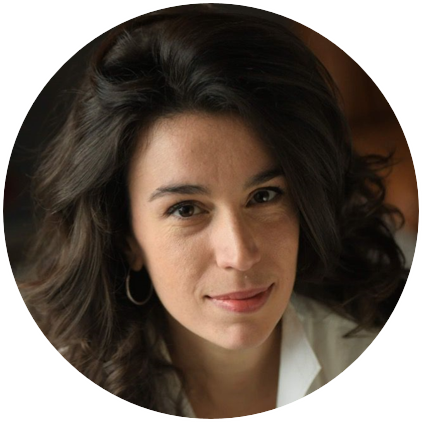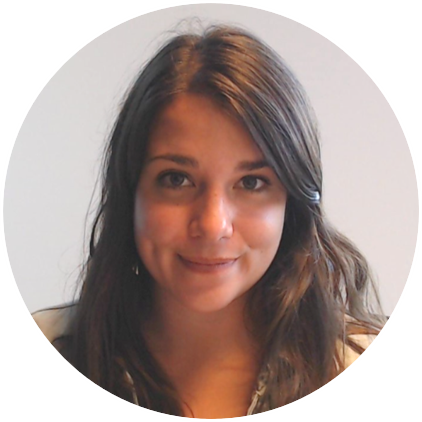International Day of Women and Girls in Science – 10 years on

In cutting edge fields such as artificial intelligence, only 1 in 5 professionals (22%) is a woman.
www.un.org
This year marks the 10th anniversary of International Day of Women and Girls in Science. How have things changed for women in this time? Do they still face barriers or experience biases? We talked to four women from Siemens Digital Industries and asked them to share their experiences and how they think the next generation of women can succeed in these fields.

Sara Mourad, Security Team Lead for Simcenter X SaaS Platform, grew up in Morocco. As the daughter of two scientists, she was naturally inspired to work in science:
“It was exciting,” she says. “We were the first in our neighborhood to have a desktop computer and Internet. This really opened my eyes to the potential of technology and what we can do with it. When I had to do research for school I found the information fast. Now I’m Team Lead for the Cloud Security team and I really enjoy my work.”
Vicky Aspasiou, Senior Product Manager, discovered that scientific training can open doors to many roles where women’s creative skills are valued and they can reach senior levels. She works as a senior product manager with Siemens Industry Software. She gained a science degree in Greece and then moved to the Netherlands to complete a Master of Science (MSc). She started her career as a GIS (Geographic Information System) engineer.
“Alongside my scientific work as an engineer (back then), my managers and I discovered a natural talent for business communication and management. Two key strengths that have greatly contributed to my career as a product manager. I was fortunate to have the opportunity to pursue product management training and to be surrounded by people who trusted and believed in me. With their support, I grew into the role, leading multiple products over the past 10 years. It is cool to bring science to reality and then into the market. For me this was a nice transition as it blends the scientific and the commercial aspects.”

Attractive opportunities abound

Chloé Renaud, Talent Acquisition Partner for Simcenter, qualified at the famous Science Po university in France, then chose to work in human resources. She says:
“I was responsible for recruitment for France for five years, then I was asked to join the Simulation and Test solutions business segment in a global role at a high level. Now I am Global Talent Acquisition Partner at Siemens STS, working on defining strategy, not just for one country but globally, dedicated to a business area.”
Renaud explains how science and technology roles have become more attractive to women. When she applied for her internship, she realized that the physical workplace had changed. She explains:
“It is not like in the past when technology meant an old-fashioned factory environment. When I applied to work here, I was not expecting such a hi-tech environment as I didn’t realize that the role was related to software. I had wanted the interview as a learning experience. However, when I arrived I enjoyed the interview and I liked the people and the offices so much that I decided to join and learn about the business”
“Science is about innovation and building the future and other cool stuff. It is a field where women can help to make a difference, and we can all be part of that, whether we are interested in ecology or sustainability or something else.”
The workplace welcomes women
While the physical workplace has evolved, the work culture has become more inclusive and welcoming to women.
Simona Ottaiano, Product Manager for AI, joined Siemens as a qualified aeronautical engineer and automotive engineer. She started in the test group in the engineering department.
“When I started,” she says, “it was all men and I was the only woman apart from the manager! It was the same with the customers, there were not a lot of women. But now things are changing.”
The new work culture values women’s contributions because so often success depends on innovation. Ottaiano has seen how this can make a difference to a business. She says:
“Diversity in the workplace helps us to consider more points of view and make better decisions. We can find more ways to address a problem and listening to more ideas fosters innovation. This is very important.”

Science and technology needs women
If there were barriers preventing women from choosing careers in science and technology, Aspasiou believes these have now gone:
“We will see more young and creative women choosing to work in science and tech because they are familiar with devices and coding, and they will be able to work in technical careers and AI. There is no longer a divide between his and hers.”
Renaud is sure that the number of women choosing to work in STEM careers will continue to grow. She shares some statistics:
“When I started 8 years ago we had an objective that 30% of all new hires should be women. At that time we knew we would not be able to achieve 50%. Now, with internships and recruitment campaigns and more equal opportunities, we are finding more women interested in this domain and the numbers will grow.
Also, more women are reaching leadership roles. Aspasiou agrees that this trend will continue. She adds:
“I believe that as the diversity metrics are taken into consideration more generally, there will be more mentoring to encourage and enable women to reach the highest levels.”
How to succeed in science and tech?
Mourad stresses that success starts with a good education:
“If you want to work in science, you need to follow certain educational paths because you need to invest time to learn the skills you need. Not every family can afford to put their children through school, but if you use AI, you can break the negative spiral around money and use AI to gain knowledge. It’s a really good, affordable way to learn, especially in science topics.”
We don’t always know which direction our careers will take when we start out. Aspasiou offer this advice:
“It’s okay if you haven’t found your purpose in your professional life yet. The key is to have the courage to let go of what doesn’t fulfill you and inspires you in what excites you and where your strengths lie. Focus on your growth, seek the right training, and connect with mentors who can guide you. With persistence and clarity, you’ll discover a career that truly fulfills you. Women with a scientific background can be strategic in acquiring the right knowledge to advance to the next level.”
Ottaiano adds that it’s important to keep investing in your training: “I believe we need to keep learning, to be curious and challenge ourselves. Its the only way to move forward.”
And confidence matters too. She puts it like this:
“There is a need for a shift in how women’s self-worth is perceived. Historically, women have often been required to prove themselves more than their male counterparts, with even measured confidence sometimes unfairly viewed as excessive. Instead, embracing a healthy, assertive self-image—while fostering supportive networks, attending conferences, and engaging in hackathons—can promote both personal growth and broader innovation. Celebrating unique strengths and recognizing that every journey inspires others can spark real change.”
All agree that confidence is key and that a science education is a great asset for a woman. Aspasiou puts it like this:
“Be confident. If you have science in your background, that is a very big strength behind you, which you can also use in a technology job or a business role.”


